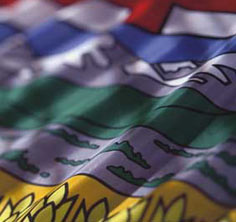
It's easy to take things for granted, especially those things you didn't have to work to create such as fossil fuel resources. Let's face it, some Albertans may be almost mystically backward in their thinking but they're not dinosaurs. Because they didn't have to work to create the oil or tar there may be a tendency to slide into an "easy come, easy go" mentality.
According to the Financial Times, Alberta is doing a lousy job of keeping its bounty from oozing through its fingers:
"Alberta’s blue-eyed sheikhs offered a plaintive prayer in the early 1990s as sliding oil prices plunged the energy-rich Canadian province into recession. “Dear God,” ran their plea, featured on a popular bumper sticker. 'Let there be another oil boom and I promise not to piss it away this time.'
"The oilsands have boosted Canada’s profile in the US and abroad. McKinsey plans to hold its next global energy conference in Calgary. 'It’s fantastic to have a piece of the economy that is so focused on improving productivity,' says Bruce Simpson, the company’s managing partner in Canada.
"Yet, for all the benefits, a frisson of nervousness has recently emerged that short-term growth may be taking precedence over long-term prudence. Mr Vander Ploeg estimates that the province’s Progressive Conservative government has saved just 8.6 per cent of the C$120bn it has collected in non-renewable resource royalties over the past 30 years.
"By contrast, Alaska has set aside about one-quarter of its resource revenues in “permanent” and “reserve” funds. Norway has tucked almost two-thirds of its North Sea riches into a rainy-day petroleum fund.
"Alberta restarted contributions to its Heritage Savings Trust Fund two years ago, after suspending them in 1987 when oil prices dived. The Conservatives have also set up special-purpose funds to finance medical research and energy innovation among other projects. But the bulk of oil and gas revenues has been spent or returned in the form of tax cuts.
"Alone among the country’s 10 provinces, Alberta has no retail sales tax. It paid off the last of its debt three years ago. Ralph Klein, the province’s avuncular premier, this year handed out a C$400 “prosperity bonus” to each resident. The government said this month it would spend another C$930m of its sizeable budget surplus on projects ranging from new schools and roads to an expansion of the Calgary Stampede showgrounds.
"Even the oil industry, generally supportive of Mr Klein, has pressed for a more coherent fiscal plan.
"The impact of oil and gas development and urban sprawl on the environment has also come under scrutiny. Dave Poulton, executive director of the Canadian Parks and Wilderness Society in Calgary, cites a shrinking caribou population, an “unproven but perceived” fall in grizzly bear numbers and extensive damage by off-road vehicles to the slopes of the Rockies. Among the worries is the oilsands projects’ appetite for water: about four barrels of water are required to extract a single barrel of oil.
"Oil and gas projects 'could have been developed at a much more planned and moderate rate', Mr Poulton adds. 'Instead we’ve seen pressure to develop a lot of resources simultaneously. There’s been a political strategy of marginalising anyone who pointed out the costs of the strategy they were following.'
One surprising critic is Peter Lougheed, Alberta’s premier from 1971 to 1985 and now a respected elder statesman. He says his eyes were opened by a recent helicopter trip over the 'oilsands projects. 'I felt it was just really bad,' he says. 'It was the opposite of orderly.'
Although he belongs to Mr Klein’s party, Mr Lougheed puts much of the blame on the laisser-faire approach to oilsands development. 'The thing that’s being completely missed,' he says, 'is: what is the benefit to the citizens from the overheating of the economy?'”
No comments:
Post a Comment